For three weeks, between late March and April, 180 students of the 'Ecole Nationale des Fleuristes de Paris' – the top floristry school in France - will take a week's study visit to the Netherlands. Their mission: to familiarize themselves with the leading Dutch cut flower sector, see, feel, and smell the products and talk to professionals about the future.
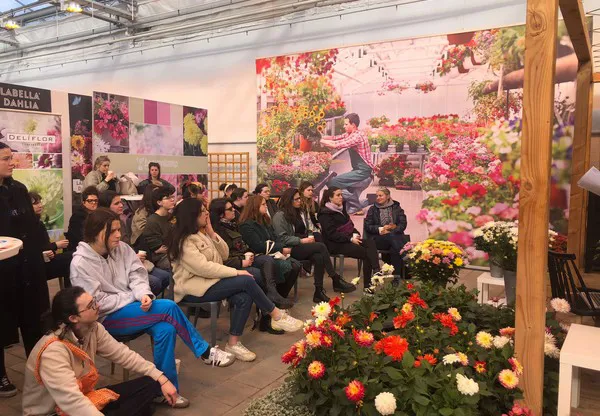
The students will do things like visit an auction, a wholesale center, and Keukenhof. They will also visit production companies to see where the flowers come from, how they are grown, and how they adapt to constant new market developments and needs. On behalf of Stichting Chryson (the Dutch chrysanthemum breeders and growers collective), breeder Deliflor Chrysanten will take the students through the breeding process and the world of chrysanthemums.
To promote the collective's Amaryllis (Amaryllis.info), the versatile, diverse Amaryllis assortment and cultivation process - which pays plenty of attention - will be explained to the students. The originally French packaging company Clayrton's will show and allow them to feel what beautiful, practical, sustainable packaging is. Marketing agency Concept Factory - co-organizer of this trip - will bring consumer knowledge and trends together for the students.
Open to knowledge exchange
Last week, the first group of 60 students was in the Netherlands. The participants, both French students and chaperones, and the participating Dutch companies had many questions for each other. What does the florist of the future look like? What are their priorities, challenges, and wishes? How are flowers produced and traded in the Netherlands? What about traceability, efficiency, and sustainability? What will consumers buy tomorrow, and how do you sell it?
Why are there flowers in the middle of winter, and what about seasonal labor and working conditions? The most interesting conversations occur when you bring students that are, on average, 25 and experienced business people and experts together. That is knowledge sharing at its best: live and over a cup of coffee rather than behind a screen or based on assumptions or prejudices.
Future-proof
The new generation of French florists is interested in two very current topics: sustainable and local and corporate social responsibility. All the host companies have some input regarding that: they are all, and for good reasons, actively involved in a healthy, future-proof sector. Passionate experts gave an insight into how they work.
The Netherlands thus shows itself as a global, integral floriculture sector partner with a strong innovative, cooperative drive and endless adaptability. "Impressive, very different than expected, worthwhile, and super instructive," are some comments from the visiting French students - a significant first step toward connecting with the new generation of florists in France.
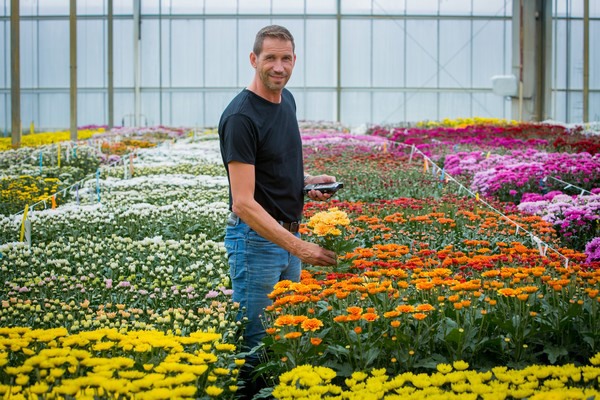
Deliflor chrysanthemums
Chrysanthemum breeder, Deliflor, can hardly have a faster, better production chain. Robots and human hands root the fresh cuttings, and the young chrysanthemums are in the greenhouse within hours. After ten to 14 days, they are in production at growers across the Netherlands. "Every year, about 15 new top varieties are marketed from our 400,000 hybrids. Disease resistance, improved resistance, longer shelf life, and, of course, new colors and shapes are at our selection activities' heart," says Bob Persoon, Market Manager.
"I'm curious how students rate the different flower characteristics and qualities. It takes between two and seven years to bring a new variety to market, so we have to ensure we make the correct choices." Deliflor and other chrysanthemum breeders and growers form the Chryson Foundation. Together they do market and consumer surveys, closely follow trends, and run the 'Just Chrysanthemum' promotional campaign. It shows the many opportunities to score with chrysanthemums among consumers.
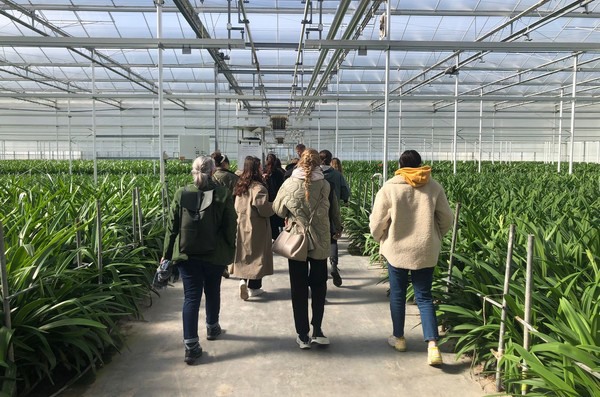
Van Marrewijk Amaryllis
Close by, Lisa and Arno van Marrewijk have been growing six kinds of amaryllis for ten years. These carefully sorted stems are exported worldwide. "More sustainable, cleaner, and more fun" is how they choose to make their business more future-proof. Their energy supply is a good example: using a CHP system and solar panels, they store summer heat for winter and winter cold for summer.
Their most recent initiative is 100% paper packaging. "It leaves a lot of scraps on the packaging area floor," Lisa admits, "but rather that than tons of plastic sheets piled all over the warehouse. Our social media channels give us direct access to our end clients in florist stores. They, too, accept those shreds of paper. Still, I'm going to ask the students what they really want and think."
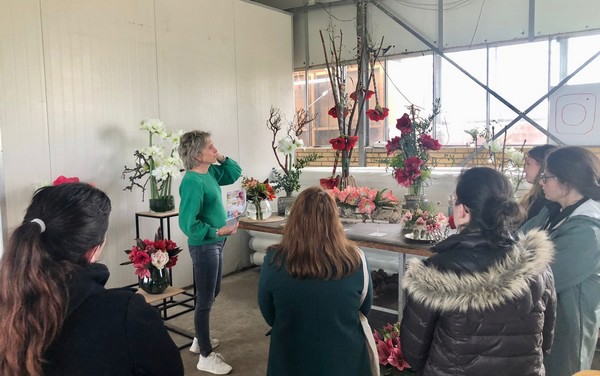
Clayrton's
The packaging manufacturer, Clayrton's, has, for 20 years, been innovating with a clear sustainability strategy and is present too, adding a "touche parfait" to this event. The company is pioneering in that area, with raw materials sourced in Europe and covers and packaging manufactured in France. Diane Goupy, Sales Netherlands, will show several new sleeves, letting the students feel them too.
"Every bouquet deserves a different presentation and protection," she says. The movement toward locally, environmentally produced flowers calls for more sustainable packaging without neglecting the sought-after feel, colors, and texture. "We invest a lot in inventing and trying new materials and believe people will give those more space and attention in the future. The new generation of florists plays a key role in that," Diane concludes.
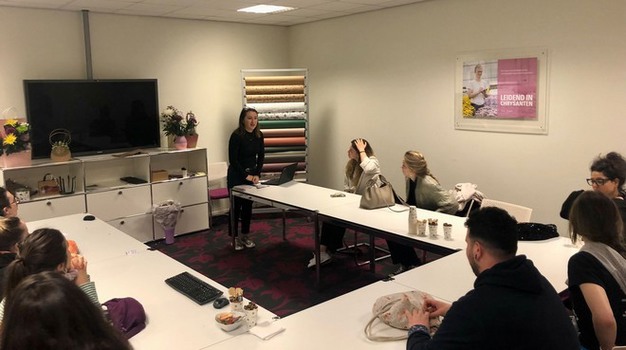
Source: Concept Factory
